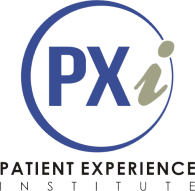Abstract
The aim of this study was to identify and explore organisational barriers to, and enablers of, patient and family centred care within an Australian acute care hospital from the perspective of that hospital’s management staff. A qualitative study, incorporating purposive sampling and semi-structured interviews was undertaken in a 215-bed metropolitan acute care public hospital in Sydney, Australia. Fifteen health managers from a broad range of professional groups, including Medicine, Nursing, Allied Health and non-clinical services were interviewed. Interview data were recorded, transcribed, and analysed for key themes using the Framework Approach. The key barriers to patient and family centred care were: i) staffing constraints and reduced levels of staff experience, ii) high staff workloads and time pressures, iii) physical resource and environment constraints and iv) unsupportive staff attitudes. The key enablers of patient and family centred care were: i) leadership focus on patient and family centred care, ii) staff satisfaction and positive staff relations, iii) formal structures and processes to support patient and family centred care, iv) staff cultural diversity and v) health professional values and role expectations. This study provides an understanding of the factors that restrict and enhance patient and family centred care specific to an Australian acute care hospital setting. Implementation of strategies targeted at these factors may help the study site, and potentially other hospitals in similar settings, to improve patient and family centred care. In turn, this may lead to improved outcomes for patients, families, staff and healthcare organisations.
Recommended Citation
Lloyd B, Elkins M, Innes L. Barriers and enablers of patient and family centred care in an Australian acute care hospital: Perspectives of health managers. Patient Experience Journal. 2018; 5(3):55-64. doi: 10.35680/2372-0247.1270.
Creative Commons License

This work is licensed under a Creative Commons Attribution-Noncommercial-No Derivative Works 4.0 License.
Included in
Health and Medical Administration Commons, Health Policy Commons, Health Services Administration Commons, Health Services Research Commons


